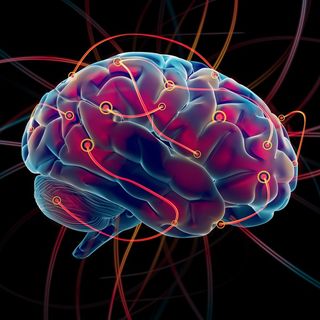
Brain Rewiring: How Neurons Reorganize After Damage – A Health Breakthrough
New research has uncovered a fascinating phenomenon in the world of neurology: the brain’s cortex can rapidly reorganize itself after losing neurons. This groundbreaking discovery sheds light on how neural networks adapt and maintain their functions even in the face of damage or injury. Scientists studying the auditory cortex have found that the brain can form nearly identical patterns within days of experiencing disruptions in sound-processing functions. This insight into the brain’s incredible adaptability comes from a recent study published in Nature Neuroscience by researchers from the University Medical Center Mainz, the Frankfurt Institute for Advanced Studies (FIAS), and Hebrew University in Jerusalem.
Brain Adaptability and Neuroplasticity
The study delves into how networks in the cerebral cortex are able to rapidly adjust to the loss of neurons, highlighting the brain’s remarkable capacity for neuroplasticity. Neuroplasticity refers to the brain’s ability to reorganize itself by forming, modifying, and strengthening neural connections in response to various stimuli. This lifelong process supports crucial functions such as learning and memory.
Furthermore, the research points to the importance of external factors like exercise in promoting neuron growth and brain rewiring. Studies have shown that physical activity can help mice forget traumatic memories and spur the formation of new neural connections.
Implications for Health and Neurological Conditions
The findings have significant implications for understanding and treating neurological conditions associated with aberrations in neuronal development. Conditions like autism spectrum disorder and epilepsy, which have been linked to disruptions in the pruning of unneeded cellular projections, may benefit from insights into how the brain compensates for neuron loss.
Moreover, recent studies from UCLA Health have demonstrated how repetitive practice can enhance skill acquisition and alter the brain’s pathways for memory. This research, published in the journal Nature, underscores the brain’s capacity to adapt and rewire itself in response to cognitive challenges.
The Future of Neural Regeneration
While the capacity for neurogenesis in the adult mammalian brain remains limited, ongoing research on the transplantation of neuronal stem cells offers promising avenues for enhancing neuronal regeneration and functional restoration after injury or disease. These developments highlight the brain’s adaptability and potential for recovery in the face of challenges.
Overall, the latest findings in neuroscience emphasize the brain’s remarkable ability to reorganize and adapt, offering new hope for individuals facing neurological impairments or injuries. As we gain a deeper understanding of the brain’s resilience and flexibility, we move closer to unlocking the secrets of neural regeneration and cognitive function.







